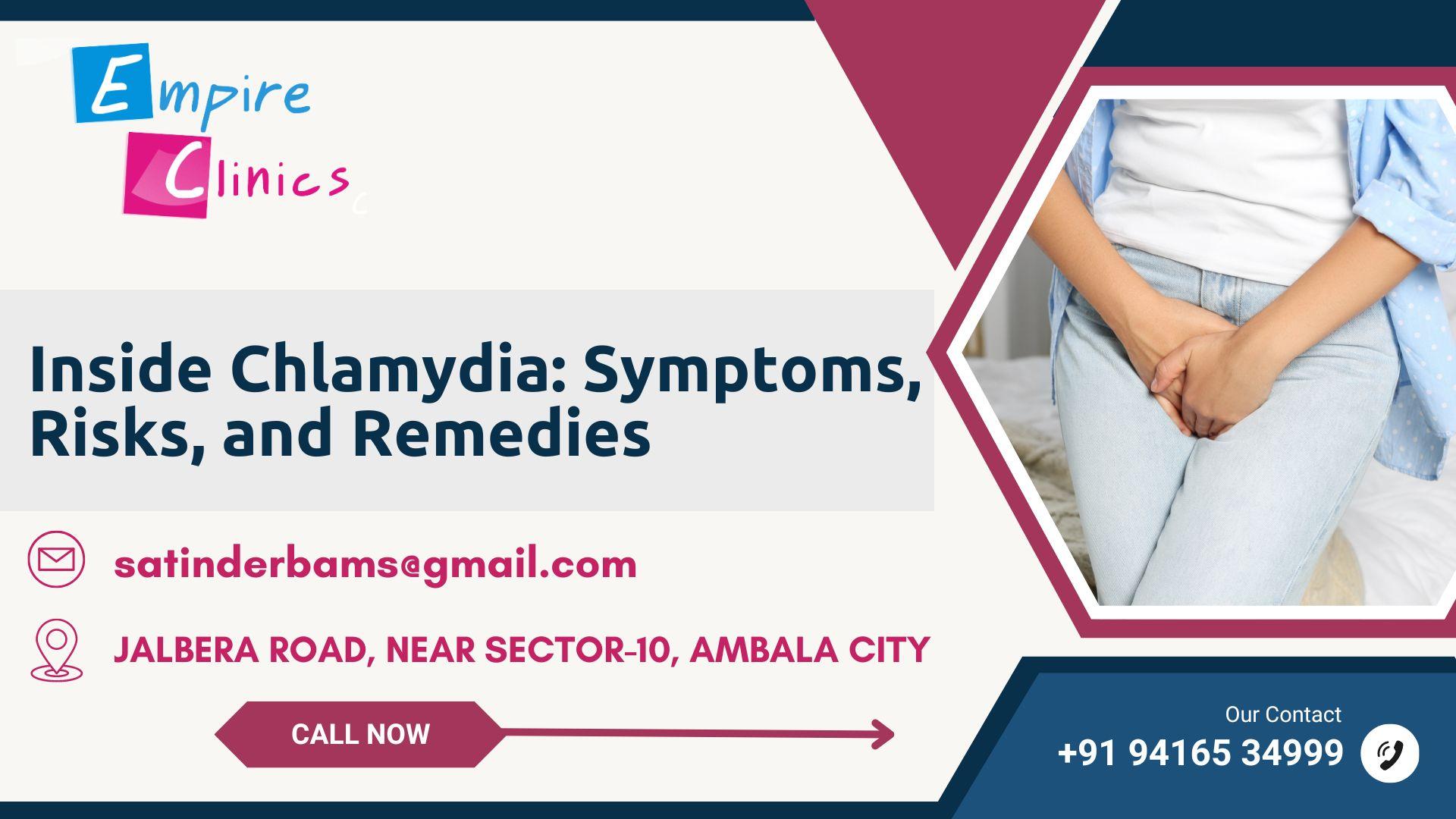Chlamydia is a prevalent sexually transmitted infection (STI) caused by the bacterium Chlamydia trachomatis. It can affect both men and women and is known for often being asymptomatic. This article explores how to recognize chlamydia, how to prevent it, and how to treat it effectively.
Table of Contents
Symptoms
Chlamydia often remains unnoticed because many individuals do not experience symptoms. When symptoms do appear, they can differ between men and women and can vary in severity.
1. In Women
- Abnormal Vaginal Discharge: Women may notice an increase in vaginal discharge that is abnormal in color or odor.
- Burning Sensation During Urination: A burning sensation while urinating is a common symptom.
- Pelvic Pain: Women might experience pain in the lower abdomen or pelvis, especially during intercourse.
- Bleeding Between Periods: Some women may see unusual bleeding between menstrual periods or after sex.
- Painful Intercourse: Pain during sexual activity can occur.
2. In Men
- Discharge from the Penis: Men may see a discharge from the penis that could be clear or cloudy.
- Burning Sensation During Urination: A burning feeling while urinating is common among men.
- Painful Testicles: Men might experience pain or swelling in the testicles.
- Urethral Itching: Itching or irritation at the tip of the penis can happen.
3. In Both Sexes
- Rectal Symptoms: If the infection affects the rectum, it can cause discomfort, discharge, or bleeding.
- Throat Symptoms: Oral sex can transmit chlamydia to the throat, potentially causing a sore throat or discomfort.
Prevention
Preventing chlamydia involves several strategies to reduce the risk of transmission and maintain sexual health.
- Use Condoms: Consistently and correctly use latex or polyurethane condoms during vaginal, anal, and oral sex to reduce the risk of chlamydia and other STIs.
- Regular Testing: Get tested regularly, especially if you are sexually active with multiple partners or in high-risk situations.
- Mutual Monogamy: Engage in a mutually monogamous relationship with a partner who has tested negative for STIs to lower the risk.
- Avoid Sharing Sex Toys: Use condoms on sex toys or clean them thoroughly to prevent the spread of infections.
- Open Communication: Discuss STI status and sexual health openly with your partners to prevent chlamydia transmission.
Treatment
Chlamydia is treatable with antibiotics. Following the prescribed treatment plan is essential for effectively curing the infection and preventing complications.
1. Antibiotics
- Azithromycin: Take a single dose of azithromycin to treat chlamydia effectively.
- Doxycycline: A seven-day course of doxycycline, taken twice daily, serves as another treatment option.
- Other Antibiotics: Your healthcare provider might prescribe alternatives such as erythromycin or levofloxacin if necessary.
2. Important Considerations
- Complete the Full Course: Always finish the entire course of antibiotics, even if symptoms disappear before completing the medication.
- Avoid Sexual Activity: Refrain from engaging in sexual activity for at least seven days after starting treatment or until the infection is confirmed to be cured.
- Partner Treatment: Ensure that sexual partners also get tested and treated to prevent reinfection and further spread.
- Follow-Up Testing: Schedule a follow-up test to confirm that the infection has been fully cleared.
Complications if Untreated
If left untreated, chlamydia can lead to serious health complications:
- In Women: Untreated chlamydia can cause pelvic inflammatory disease (PID), leading to chronic pelvic pain, infertility, and an increased risk of ectopic pregnancy.
- In Men: Chlamydia can cause epididymitis, an inflammation of the tube at the back of the testicles, which might lead to infertility.
- In Both Sexes: Untreated chlamydia can lead to reactive arthritis and increase susceptibility to HIV.
Have any Query about Chlamydia, Contact Now
It is a common STI that often goes undetected due to the absence of symptoms. Recognizing the symptoms, practicing effective prevention methods, and seeking prompt treatment are crucial steps in managing and eliminating the infection. Regular STI testing, safe sex practices, and open communication with sexual partners are essential for preventing it and maintaining overall sexual health. If you suspect you have chlamydia or have been exposed to it, consult a healthcare provider for appropriate testing and treatment.







